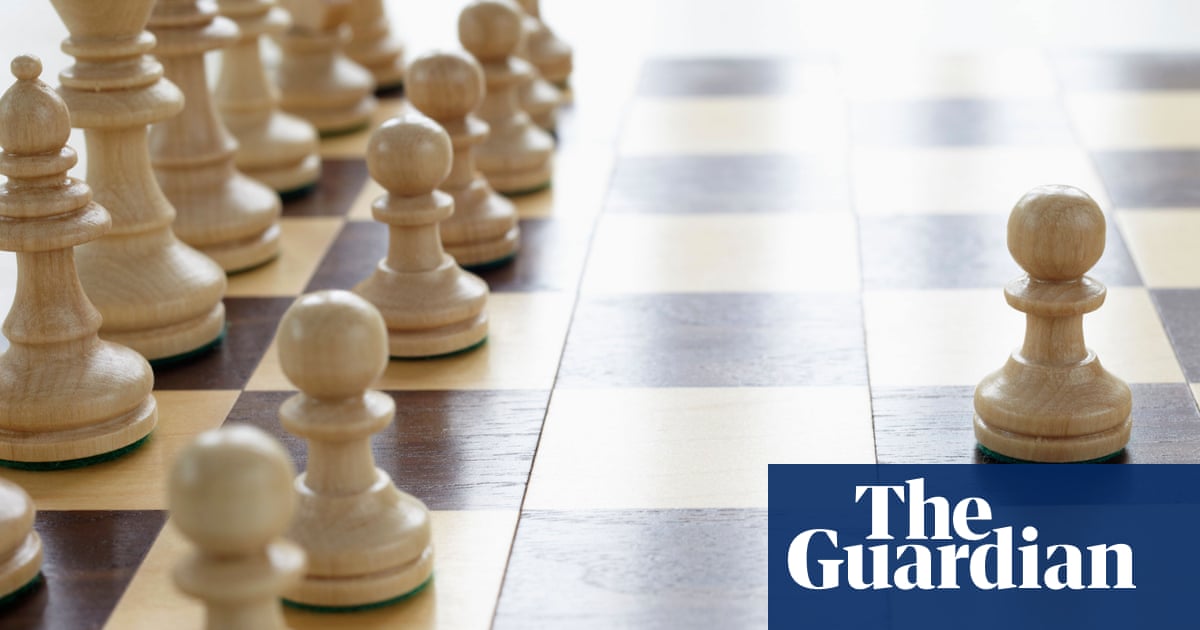This week’s puzzle is a chance to enter an annual national contest in which Guardian readers traditionally perform strongly and in considerable numbers. White in the diagram, playing as usual up the board, is to play and checkmate in two moves, against any black defence.
The puzzle is the first stage of the annual Winton British Solving Championship, organised by the British Chess Problem Society. This competition is open only to British residents, and entry is free. To take part, simply send White’s first move to Nigel Dennis, Boundary House, 230 Greys Road, Henley-on-Thames, Oxon RG9 1QY or by email towinton@theproblemist.org.
All entries must be postmarked or emailed no later than 31 July 2025, and provide the entrant’s name and home address. Juniors under 18 on 31 August 2024 should give their date of birth. Please mark your entry “Guardian”.
Receipt of the solution to the first stage problem will be acknowledged after the closing date, when all competitors will receive the answer. Those who get it right will also be sent the postal round of eight harder problems, with plenty of time for solving. The best 15-20 competitors from the postal round, plus the best juniors, will be invited to the final at Harrow School on Saturday 21 February 2026, where the prize money is expected to be £1,500.
The winner of the final will also qualify for the Great Britain team in the 2025 world solving championship, an event where GB is often a medal contender. At Jurmala, Latvia, in July 2024, the Great Britain team of John Nunn (individual silver medallist), David Hodge (2024 British champion) and Jonathan Mestel won the team gold medals for the first time since 2007. Poland won the silver medals, and Israel the bronze.
The starter problem is tricky, with both white and black armies scattered apparently randomly round the board. There are some near-misses to avoid. Obvious first move choices rarely work. It is easy to make an error, so be sure to double- and treble-check your answer before sending it. Good luck to all Guardian entrants.
There could be a double burst of chess history this weekend.
At Sharjah, United Arab Emirates,Argentina’s “Chess Messi”, 11-year-old Faustino Oro, is closing in on Abhimanyu Mishra’s age record for the youngest ever grandmaster title, which the American achieved at 12 years and four months.
Oro, who already has two of his required three GM norms, can surpass Mishra’s record if he totals 1.5/3 from his final three Sharjah games and then improves his rating from its current 2454to the required 2500.
With three of the nine rounds at Sharjah remaining, Oro has scored an unbeaten 3.5/6 with a tournament performance rating of 2560. All his six opponents have been grandmasters rated above 2550. He probably needs just 1.5/3 for his historic third GM norm.
Over to Belgrade, Serbia, where Russia’s Roman Shogdzhiev, who has been beating GMs at blitz since he was seven, and is now just 10 years and two months old, is on the hunt for Oro’s world records and seeking histhird and final IM norm.
Shogdziev is competing at Belgrade in a low-level event where the IM norm is a challenging 7.5/9, but the youngster was recently invited to a blitz tournament alongside Russia’s GM elite and made an excellent score against the likes of Andrey Esipenko and Alexey Dreev,both of whom he beat.
At Belgrade, Shogdzhiev has made light of his task, with 4.5/5 so far. He will still need some rating points, but Oro’s IM world age record of 10 years and eight months is within his reach. All the signs are that this young boy is being groomed to restore the great days of Russian chess.
